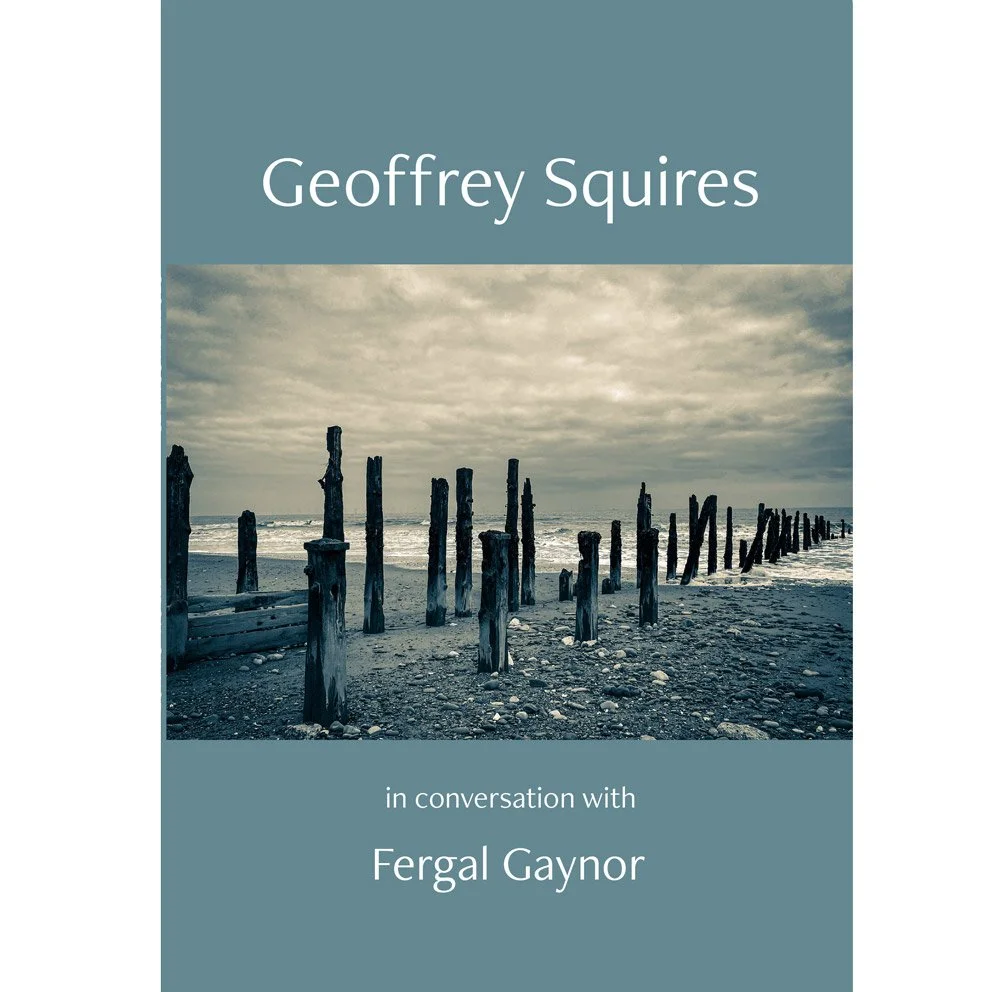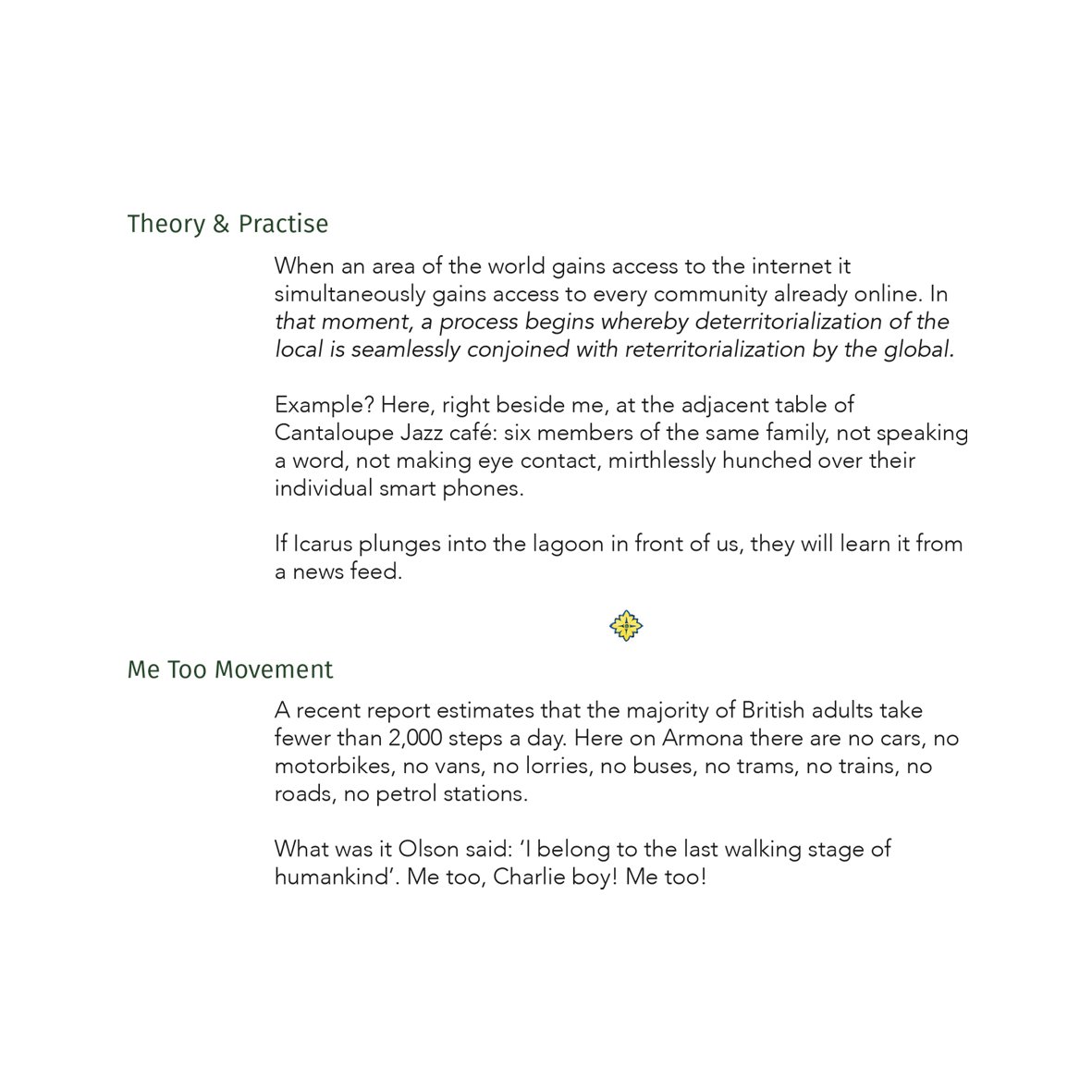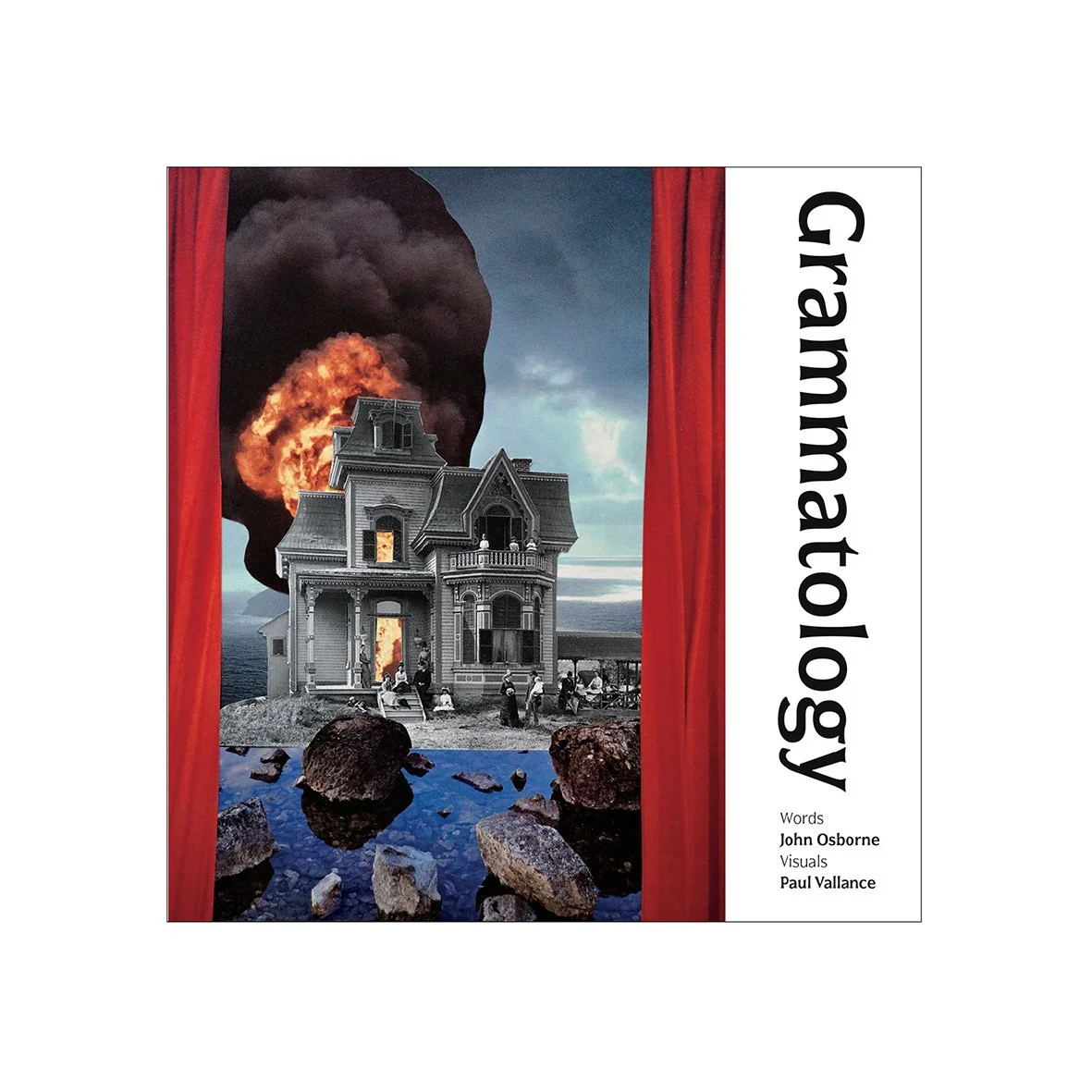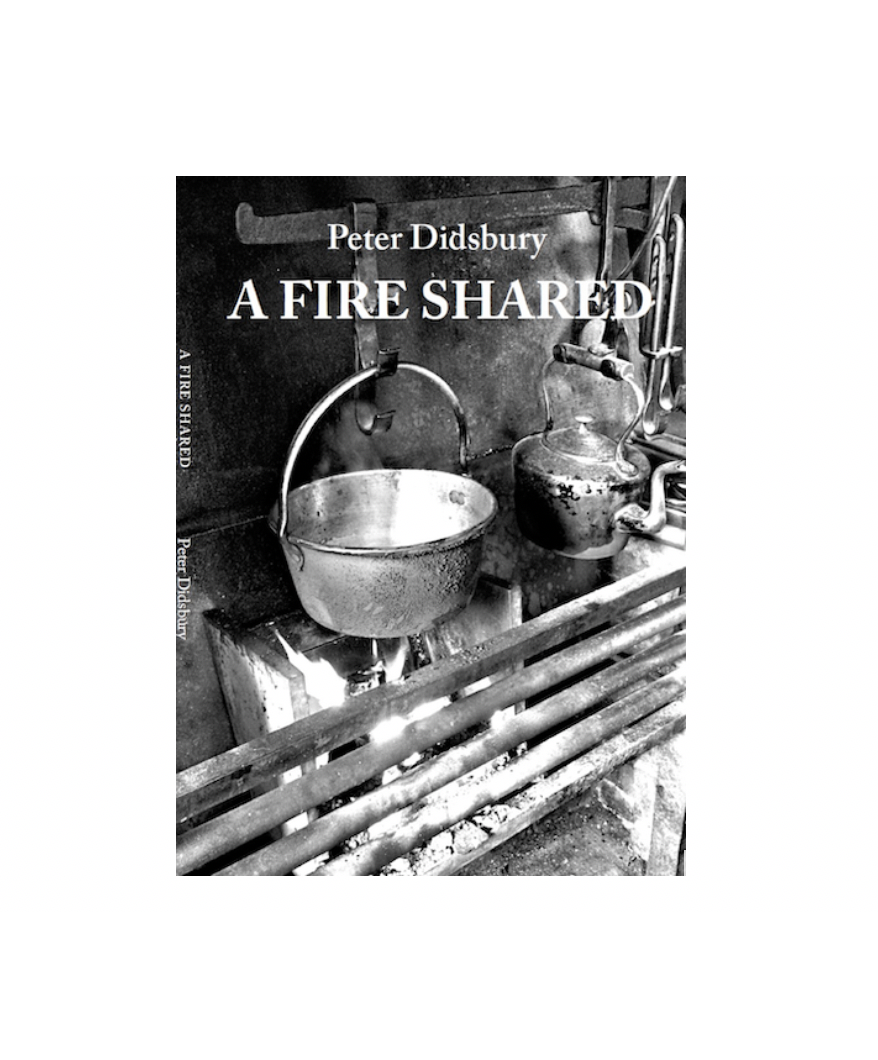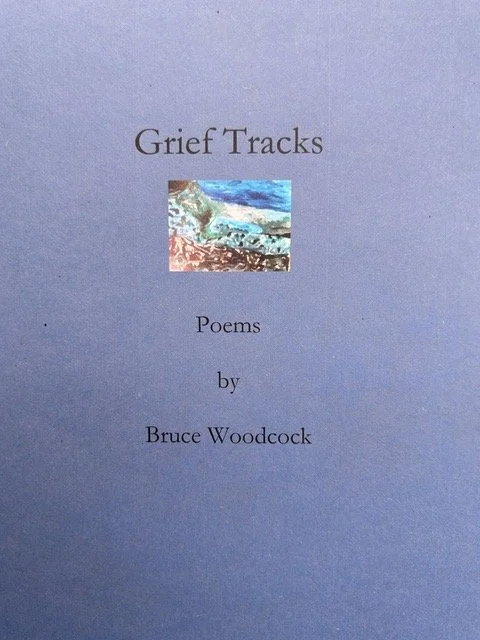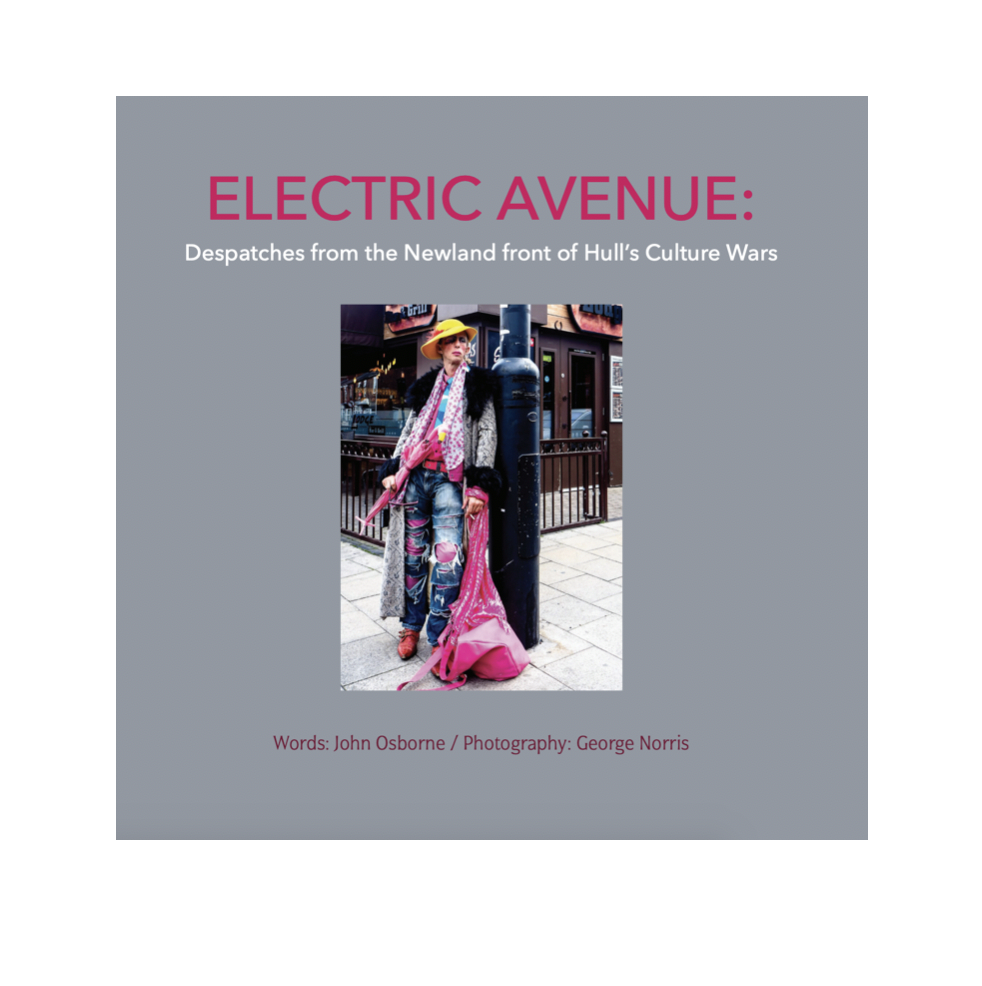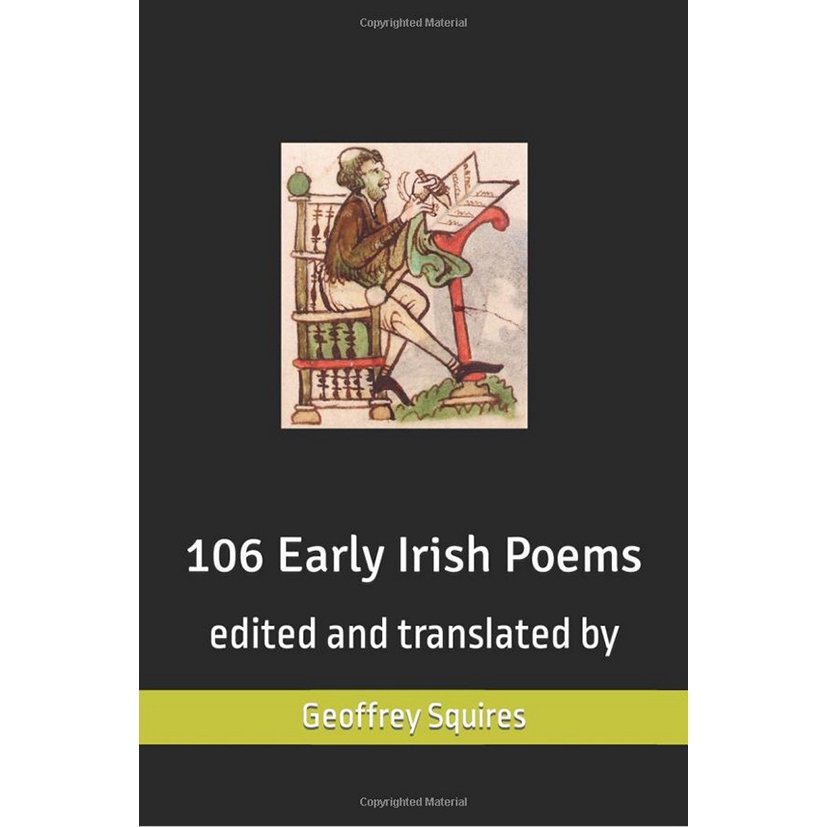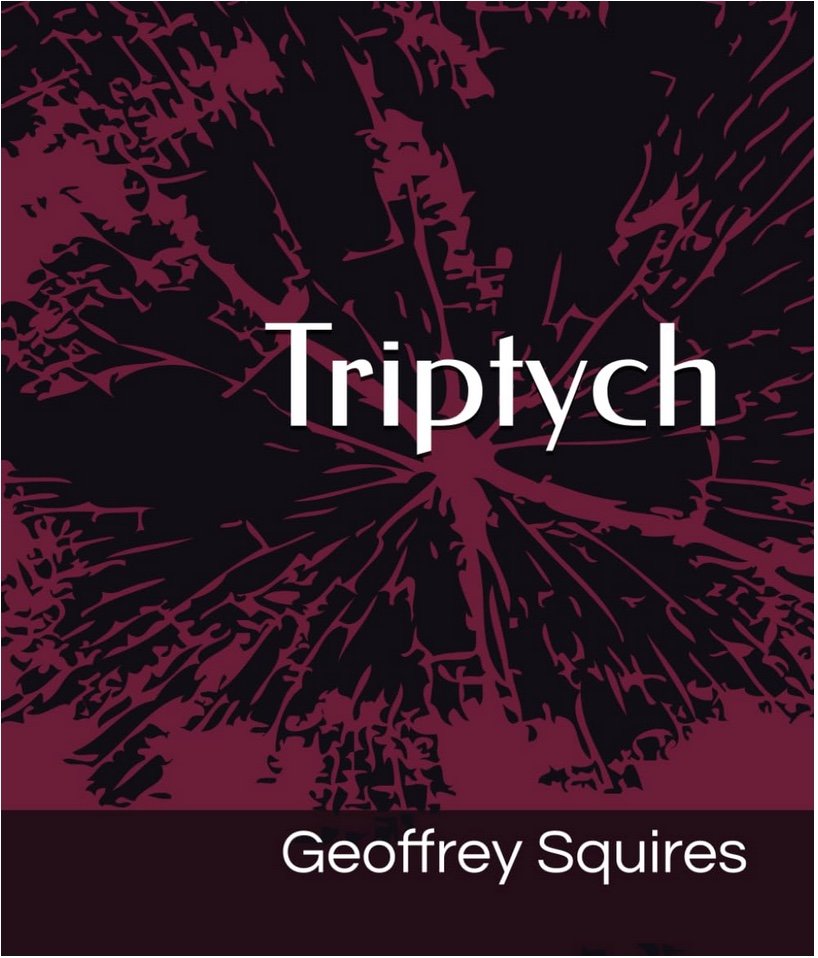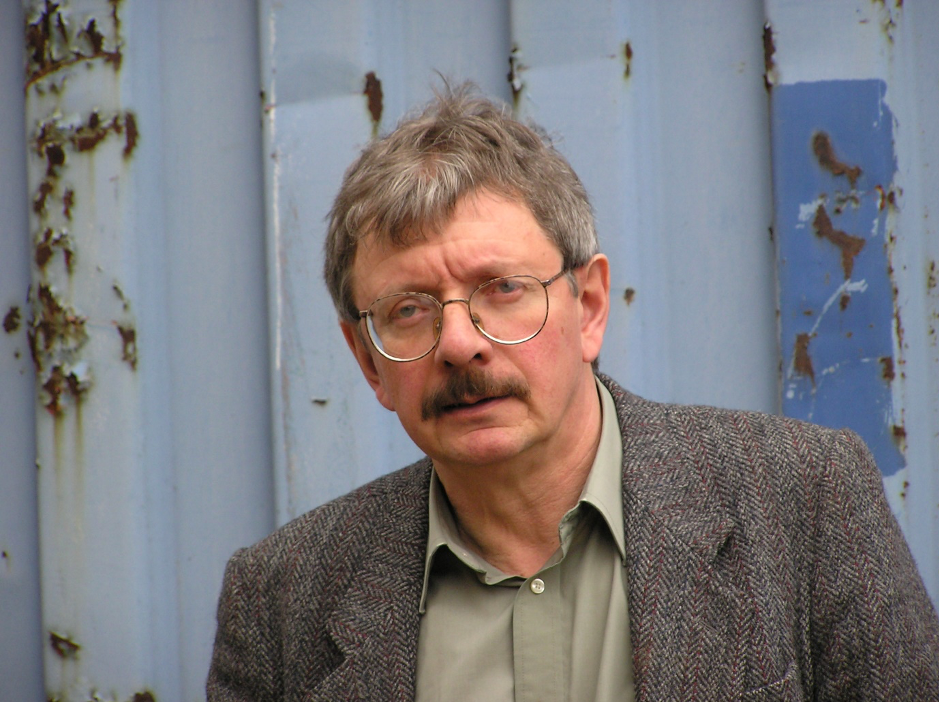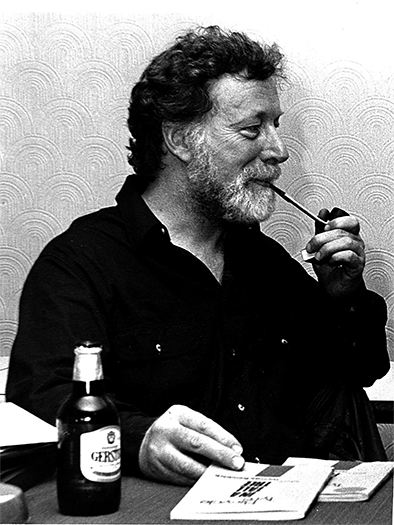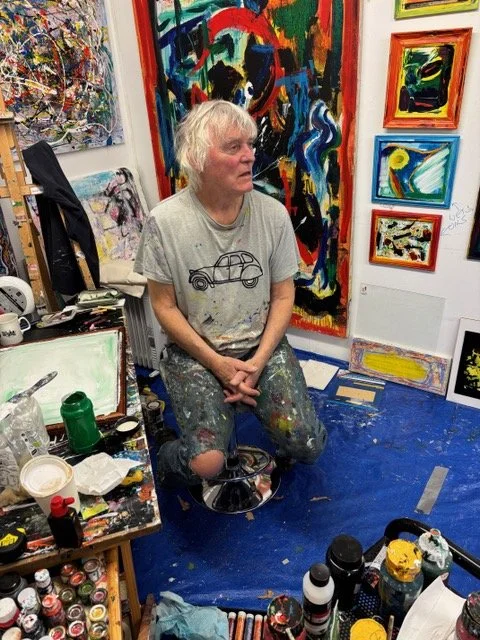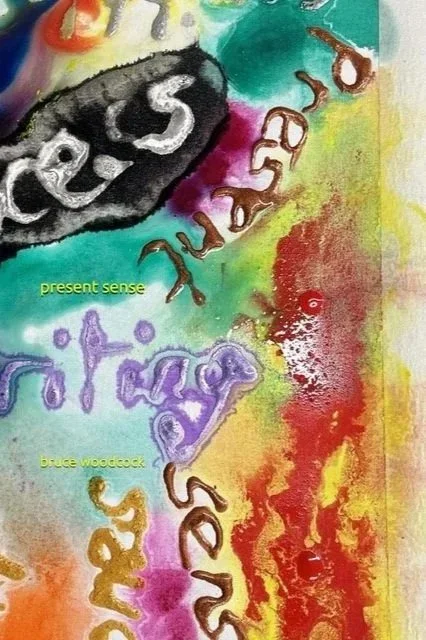New Publications
Photo: Mary McCollum
ANDY FLETCHER is at once the most distinguished poet to emerge in Hull since the generation launched in Douglas Dunn’s landmark anthology A Rumoured City (1982) and a major exponent of that grave but playful Anglophone surrealism we associate with such names as John Ashbery, Paul Durcan, Selima Hill, Paul Muldoon and Peter Didsbury.
Like its predecessors the mile long piano (2007) and How to be a Bomb (2016), his new collection the uncorked banshee rebellion bottle offers a bumper harvest of seventy poems. On first reviewing the manuscript of this volume the co-director of LegalHighsPress, Bruce Woodcock, exclaimed:
There's a great mixture of the funny, moving, playful, gamey, thought-provoking, mysterious, unsettling, upsetting, surreal, quirky, intimate, public, protesting, fantastic, unexpected, dream-like, kafka-esque, surprising, word games, haiku-type shorts and a number of other things.
Like Larkin, like Didsbury, Fletcher is finely aware that humour is not an escape from seriousness but a means of attaining it. If the uncorked banshee rebellion bottle is funny, it is seriously funny. Undergirding its verbal fireworks is a sustained critique of the twenty-first century alliance between Big Brother and Big Tech, and an urgent appeal to renew our commitments to each other, to nature, to intimacy, to simplicity and to touch, while there is still time.
The book is available to buy on Shop
Praise for the uncorked banshee rebellion bottle
Bob Mee, poetry and more
I admit to personal bias here: Andy Fletcher and I go back more than forty years, could be nearing fifty, if numbers matter. And in my view he’s one of the best poets I’ve read in all that time. Like so many others, he should have had more recognition, but thankfully – as his new collection the uncorked banshee rebellion bottle demonstrates – he’s still hard at work, crafting his tight, lively, profound, sometimes mysterious, sometimes tender and always entertaining poems.
He tends to take an image or circumstance, explore it, twist it, find the life in it and then pare it to its essence. He’s rarely if ever wasteful with words, or loose in his construction. With each poem, there is a sense that here is a poet who knows what he wants from the piece – and knows how best to achieve it. This is a skill not easily learned.
Some poems are very short, just two or three lines, some are blocks set out as prose without punctuation, most are tight and fit into one side, which makes them deceptive. On one level you can take them at face value, enjoy the fun in their ideas, read them quickly. On another you can re-read and consider the depths of understanding of the human condition they contain.
He’s English – born in Halifax, has lived most of his life in Hull – yet is not of the ‘English school’, not trapped by any distraction of conventional form or a struggle to fit into a poetic legacy. There is, however, a ferocious intelligence at work, and a refusal to compromise.
He should have been recognised long ago as one of England’s best poets.
Praise for Andy Fletcher’s previous volumes
You get the impression that if Andy Fletcher were ever to play the piano it would need to be a mile long – no ordinary keyboard would accommodate the breadth of his creative imagination. He is a master of unexpected juxtapositions and surreal adventure. Art is all around us as long as there is human imagination. If you are sceptical my advice is to pick up Fletcher’s superb collection. He will convince you.
Envoi
There are some highly successful pieces in this collection. Andy Fletcher is at his best when articulating moments of tension or outright crisis through mundane detail. Here the world of possibilities co-exists with and joyfully menaces the everyday. In a mad world we can set our own liberating madness over and against it. Andy Fletcher celebrates that liberty.
Other Poetry
Andy Fletcher’s poetry ranges from simple, stark, haiku-like lines to rambling dreamlike prose, by turns both delightfully surreal and as clear as a raindrop caught by sunlight. You will return to these words again and again and be rewarded with something fresh and arresting at each visit.
Russ Litten
Andy Fletcher’s How to be a Bomb is imbued with haiku like lines of social observation, often acute, written from unusual narrative angles that surprise and delight in equal measure. The language is fresh and alive. Several poems are powered by memorable endings that are both provocative and funny.
David Caddy, Tears in the Fence
This is a well written collection which is both humorous and touching often at the same time and has moments of great seriousness and profundity without ever being sombre or heavy. These poems remind us that we do not have to look to the heavens for meaning and significance – it is all around us in the people we know, the things we see, the words we speak, the thoughts we think. They also, with their subtle swoops and swerves of syntax and sense, their mercurial mutations from a start point of apparent simplicity, remind us that how things are is not necessarily how things will always be.
Tom Jenks, Parameter
Andy Fletcher employs a knowing humour and a slanted way of looking at the familiar. Small details grab attention and the poems employ deceptively relaxed rhythms. Some are humorous and flippant but some are capable of giving the reader a chill of recognition.
Emma Lee, The Journal
GEOFF SQUIRES in conversation with Fergal Gaynor
A serious and uncompromising poet, with a deeply philosophical sensibility, drawn to English at its barest and most abstract (comparable in this to Samuel Beckett), Geoff Squires’ uniqueness has led to his slipping the nets of readerly and critical awareness in either his native Ireland or his adoptive England. Yet bilingual editions of his poetry sell out in Parisian bookshops and his translations from the Persian have won a prestigious award in the United States.
This little book offers a bracing and rigorous introduction to his work by preserving an extended conversation, conducted by email over several years, with fellow-poet and literary editor Fergal Gaynor. The interview first appeared in the Cork-based arts magazine Enclave Review but has been especially extended in this edition to cover the period of Geoff’s association with LegalHighsPress.
Forty pages in length, the volume quotes six of Geoff’s poems entire together with a short extract from a longer work. The text is handsomely offset by five stunning photographs from Fiona Caley, a distinguished artist in her own right
Book available to buy on shop
Author Profiles
Tony Flynn
TONY FLYNN
Exactly forty years ago the anthology A Rumoured City, New Poets from Hull, edited by Douglas Dunn and prefaced by Philip Larkin, presented ten arresting young talents. We are proud to mark that anniversary by publishing the latest collection from Tony Flynn, one of the most compelling voices in the volume – indeed, in the country.
Book available to buy on Shop
Reviews of The Heart Itself
In his foreword to A Rumoured City in 1982, Philip Larkin said of Hull that it has the ‘air of having its face half-turned towards distance and silence, and what lies beyond them’. The same might be said of many poems by Tony Flynn, one of the new poets from the city gathered in the anthology.
The Heart Itself is Flynn’s fourth volume of poetry, issued by LegalHighsPress, which should be commended for its commitment to contemporary verse. Like Larkin, Flynn’s publications have been sparse and reflect a discriminating sensibility at work, one in which a preoccupying theme is the struggle language enacts to capture the world around us.
The volume covers a significant span of those with whom he has been intimate – lovers, friends and family. Many poems are tenderly written, in memoriam. His recollections of his mother and father in ‘The Wireless’ are humane, exact and funny. The title poem shows the best of what Flynn is capable. Short, tightly wrought, intimate and perfectly tuned. It finds emotion rarely felt in imagist verse. The poem is dedicated to the memory of ‘D.F.’ but would console anyone who has lost someone too young to leave. It deserves a place among any modern memorial verse. ‘Body Language’ is another excellent poem. [It] is about the unsayable, but here the difficulty speaks loud and clear with a perfectly deployed simile.
This is a nicely produced and carefully organised collection with flashes of humane splendour shot through with metaphysical complexity. It works uncompromisingly in a tradition of questioning English verse.
CHRISTOPHER FLETCHER, About Larkin, No. 56, October 2023.
Reading Tony Flynn’s wonderful new collection is like watching Elizabeth Bishop’s sandpiper – Flynn too is always searching, ignoring the extraneous, knowing every detail carries a world of meaning. . . We are left reflecting on Flynn’s perfectly asked, perfectly unanswered questions. Showing, not telling us how everything might, or might not, hold together.
What stands out, walking around this collection again is the sheer scale of Flynn’s ambition both for our spiritual and our human condition.
STEVE BARTON, The High Window, February 2023.
Praise for Tony Flynn’s previous collections
SEPARATIONS (pamphlet) - Flynn is very good. . . His poems are all short, usually impressionistic sketches of domestic life in working-class families. But they open out suddenly and always aspire to lyrical amplitude.
PETER PORTER, Times Literary Supplement
BODY POLITIC - Flynn is concerned with the body in its vulnerability, open to violence, violation, deprivation, deformation, dismemberment, death – and with the vulnerable mind, witness and sharer of corporeal affliction. . . Yet there are epiphanies of grace, of restoration and healing. . . Flynn has developed a poetic register that is admirable in its discipline and economy.
NICOLAS TREDELL, London Review of Books
A STRANGE ROUTINE - The delicacy and restraint with which Tony Flynn approaches his material of a working-class Catholic background in no way inhibit an extremely individual voice. . . An admirable, subtle and intelligent debut from a poet who gives considerable pleasure in the precision and resonance of his images.
CHRISTOPHER HOPE, London Magazine
THE MERMAID CHAIR: NEW & SELECTED POEMS - Maybe it’s because he publishes so little that he is not as well-known as he should be; but what we do have in this collection is 95 gems, pared to a concision so tight it’s almost painful – though also strangely joyous and beautiful. . . This is a book that everyone should get hold of.
STEVEN WALING, The North
BODY POLITIC - Body Politic gives us a poetry that looks plain and factual but where every word has been thoroughly weighed for appropriateness. It is poetry that is profoundly moving in its simplicity. In this it approaches someone like the great Hungarian poet Pilinzsky, also a Catholic. . . If someone asked me ‘What is poetry?’ Flynn’s work is one place I might start my explanation.
DAVID KENNEDY, P.N. Review
Geoff Squires
GEOFF SQUIRES has lived in Hull for over forty years, steadily publishing collections of his own beguilingly abstract poems together with award-winning translations from Persian and from early Irish. He is certainly one of the three or four most distinguished poets resident in this city since Philip Larkin’s heyday with appreciative audiences in the Irish Republic (from whence he came), the USA and France. Yet as far as the ‘Hull Poets’ industry is concerned he is a non-person, excluded from every pertinent anthology, conference and festival. One of the aims of LegalHighsPress is to redraw the map of Hull poetry to give neglected masters like Geoff Squires their beautiful due.
With its mixture of verse and prose, its collage of scenes and incidents and its Olsonian composition by field, Geoffrey Squires’ first book, Drowned Stones (New Writers’ Press, Dublin, 1975) marked a radical new departure in Irish poetry and one which exemplified the aim of its publisher, which was to break the mould of current writing there. An early pamphlet, Figures, was praised in The Irish Times as having ‘the equivalent of perfect pitch’. Summer, a long poem for three voices, was broadcast by the BBC Third Programme in 1970. Squires’ writing developed further with XXI Poems (Menard Press, 1980) Poem in Three Sections (Irish University Review, 1983) and Landscapes and Silences (NWP, 1996). By now Squires was regarded as a prime example of ‘Another Ireland’ by the American critic Robert Archambeau in Notre Dame Review and described as ‘one of the most original poets of his generation’ by the academic James Mays in The Irish Review.
The early work was collected in Untitled and other Poems (Wild Honey Press, Bray, 2004) which was later reprinted online by LegalHighsPress. Several of the volumes were also published later still in bilingual editions (Pierres Noyées, Paysages et Silences, Silhouettes, XXI Poèmes) by Editions Unes, Nice and widely reviewed in France. In all, this press, edited by Francois Heusbourg, has brought out seven of Squires’ publications, showing a sustained commitment to his work and winning him an important reputation there. He has given a number of readings in France and was a writer in residence in Béthune in 2016.
Over time, Squires’ poetry moved away from its preoccupation with the phenomenology of perception towards something more abstract and these later poems were collected in Abstract Lyrics (Wild Honey Press, 2012) also now available online through LegalHighsPress. This and the earlier work have provoked reactions ranging from ‘the death of poetry’ (Ken Keating) to Francois Heusbourg’s judgement at a recent conference on Proust and Irish
Writing that Squires is ‘the most important Irish poet of his generation’. In particular the final sequence of Untitled and other poems, published in France as Sans Titre, drew the comment in the journal La Matricule des Anges: ‘be in no doubt, this is a great book’.
Squires has published two annotated volumes of Early Irish translations. The first was My News for You (Shearsman Books, 2015) which was described by the Irish poet Tom McCarthy on Amazon.com as ‘a miracle’ and warmly praised for its lyrical quality in the Dublin Review of Books. An extended, revised edition, 106 Early Irish Poems was brought out as a Kindle paperback by LegalHighsPress in 2022 and elicited the simple command on the Elliptical Movements website: read it.
Having lived in Iran for three years Squires is also a prominent translator of Persian poetry. His Hafez (Miami University Press, Oxford, Ohio, 2014) won the annual Lois Roth translation prize of the American Institute of Iranian Studies. His subsequent selection of poems by Rumi from the same publisher in 2020 enhanced his reputation and he has reflected on his approach to both poets in the recent Routledge Handbook of Persian Literary Translation. Other classical Persian translations were included in Washburn and Major’s 1998 anthology of World Poetry. In 2022, Mazda Publishers in California also brought out The New Verse: a selection of modern Persian Poetry, the first volume of its kind by a western writer.
After living and working in a number of countries Squires settled some forty years ago in Hull and is now retired. His most recent publication is Triptych, a three-part poem in which the negations of the first part contrast with the engagements of the second leading to a partial resolution in the third. The book also contains a complete Biobibliography.
His bilingual (English/French) selected poems (Choix de Poemes) has also been recently published by Editions Unes, Nice and is available from Amazon.
Peter Didsbury
PETER DIDSBURY
One of the best poets in the country, Peter Didsbury is back with his first collection for seventeen years. Its 38 poems evocatively offset by the monochrome photographs of Ken Steedman, A Fire Shared is a major addition to a swashbuckling and beguiling oeuvre. Was it worth the wait? This is what the reviewers say:
Reviews for Peter Didsbury’s A Fire Shared
-
RICHARD SKINNER - 'Write Out Loud', August 2022
The novelist Richard Skinner posted the following on Facebook:
As those of you who know me well know, I only ever write one poetry review every summer, about a book I love, that may or may not have been published recently. This year, I wrote about Peter Didsbury’s amazing collection, A Fire Shared. I’ve never read a book of poems quite like it. Very funny and highly recommended.This is an extract from his review:. . . for me, what is most impressive in Didsbury’s work is his microscopic attention to detail in the natural world. Nowhere is this more evident than in the truly cosmic poem ‘Words at Wharram Percy’, which was originally published in the TLS and was once projected onto the Royal Festival Hall. In the poem, the narrator observes:
Low-skimming birds pick flies from the tensil / surface of the pond, and each touch rings / as if struck from a vanished bell. / Hillside pasture lies fizzing under the rain, / through which a partridge / hurries her brood to safety / among cowslip, oat grass, Yorkshire fog, black medick.
This poem wouldn’t look out of place in Geoffrey Hill’s Mercian Hymns with its telescopic look back through time to a wife who calls out ‘in Middle English,/ to a man who mows in the glebe’. All of the natural world and its history falls into this magnificent poem. It is, perhaps, the finest poem in the book, a book which is elsewhere also packed with bright and beautiful things.
-
DAVID WHEATLEY, 'TLS', August 2022
This new collection represents an unexpected and welcome resurrection. Didsbury’s career has always pursued an idiosyncratic arc. His debut collection, The Butchers of Hull, was published in the same year (1982) as A Rumoured City, the anthology of Hull poetry edited by Douglas Dunn. Like many Hull poets with the examples of Larkin and Dunn behind them, the young Didsbury rendered vividly the post-industrial landscapes of that city. From the outset, though, his work struck a quirkier, more lucid and baroque note, not to mention the strong religious sensibility that provided its undertow. All these qualities remain present in A Fire Shared, whose title poem finds the poet contemplating a Victorian cholera epidemic with a recently arrived Irish immigrant. Her English is halting, and the combination of empathy and acknowledgement of human difference is vintage Didsbury. Shows of zeal are inimical to Didsbury’s religious temperament, and in ‘Words at Skipsea Brough’, a fulminating dissenting minister is comically turned to a blasted elm. The poet prefers more easy-going forms of religious illumination, which might occur while he stands in the garden or stares at shadows on the kitchen wall. Reveries are often subject to interruption, however. Contemplating the evening star, the poet realizes that what he is in fact looking at is a police helicopter over a park, while ‘Matelots’, addressed to E A Markham, moves from convivial anecdote to a confrontation with the slave trade. Didsbury has lived almost all his life in Hull, but one of the most powerful poems here, ‘Poulton Street’, is set in Fleetwood, where he spent his first six years. The opening evocation of an ancestor crushing her thumb in a mangle may remind readers of Geoffrey Hill’s visions of his own grandmother ‘in the nailer’s darg’. The poem that follows is a remarkable survey of poverty, disease, war and class struggle. In another random encounter, a man approaches Didsbury in the park and says ‘Look . . ./ I’ve got . . . fucking . . ./ NOTHING, mate’. Familiarity with material and spiritual want is common in Didsbury, but out of conditions of need, absence and nothingness, he fashions a poetry of grace, insight and illumination.
-
JULES SMITH, 'About Larkin', October 2020
The first thing to say about this collection of 38 poems, a paragon of irregularity (as ever) in types, lines and line-lengths, is that a good deal is vintage. It’s more reader-friendly than earlier books and would be an ideal introduction to his imaginative realm (which is Hull and its surrounding landscapes but with hints of transcendence) for the unacquainted. His grand sweep of phrase-making characteristically moves from the rhetorical to quirky turns of the demotic, interspersed with whimsical conceptions, personal asides, observations of nature or the domestic. He can be thought of as a visionary poet in whom the pre-Romantic, Romantic and postmodernist eras somehow co-exist.
-
JEREMY WIKELEY, ‘Poetry Birmingham, Spring/Summer 2022
The best explanation I can find for these most powerful Didsbury poems is that they are akin to religious experiences. Akin, because . . . poems like ‘A Closing Prospect’ don’t express a particular faith: they don’t seek to justify, explain or establish a relationship with a higher power. Rather, they are scripts, scripts which, in the moment of reading, provide something just as ‘religious’, but arguably rarer, less subjective, and so perhaps more precious than individual reassurance or personal recognition: a sense of wonder.
-
IAN POPLE, 'Confingo', Autumn 2022
There is a rich diversity among the poems in this book, a fine addition to this excellent poet’s catalogue.
-
ED REISS, 'Stand', 2021
A Fire Shared radiates warmth and intense colour.
George Kendrick
George Kendrick
George Kendrick’s premature death cut short an exemplary career. This edition of ‘new’ and selected poems provides an ideal opportunity for a fresh generation of readers to discover a poet with claims to major status.
Matthew Stewart reviews When All is Said and Done
Let’s take a forgotten poet who went from publishing with Carcanet, garnering a PBS Recommendation and receiving excellent reviews in the broadsheets in the process, to barely appearing in Google searches for his name. Let’s chuck in an almost cinematographic biography with enough intriguing details and mysterious gaps to set a screenwriter’s pulse racing. Let’s top it with off with a dedicated small publisher who’ve finally managed to bring together a Selected that’s taken from an unpublished manuscript and a generous wodge of work from the first book. Let’s assume his work must have been neglected for a valid reason, and let’s guess that the poems themselves probably aren’t much cop when we read them decades later. Except they are. In fact, several of them are outstanding and deserve a place at the top table of 20th century UK poetry.
The poet in question is George Kendrick. Born and bred in Hull, Kendrick published his first full collection, Bicycle Tyre in a Tall Tree, in 1974. However, in the late 1980s, his marriage having ended, he abandoned his safe career as a college lecturer, set sail for France and started a new life with a new family that was cut short by cancer at the age of fifty-eight. At the time of his premature death, he was preparing a second collection.
LegalHighsPress have now brought together the best of his known work in a new volume titled When All is Said and Done. There might apparently be more poems, as yet undiscovered, but that’s another story, another potential essay in due course, and a diversion from the sheer quality of this batch of excellent poems. For the moment, we should feel fortunate to have access to them, thanks to the unselfish work of the editors. Moving on to the contents of When All is Said and Done, George Kendrick’s range is wide. He can deal with family and generational shifts via the clear-eyed observation of detail, as in ‘Mother’s House’…
…patterned with memories, the house is dead.…patterned with memories, the house is dead.
It has joined those other dreams that are dreamed by strangers
who clear out the old rosebeds and add new porches
over the entrances they too must leave by.
And he can switch from bathos to hyperbole within a single poem, playing both off against each other, as in the opening and closing lines to ‘Dead Tortoise’…
We waited long enough to be quite sure.
Rotten inside, he stank a week before
we drove him to that weedy, unwatched ditch…
…Beauty, devouring the cold lizard eye,
will hymn your requiem eternally –
sparing some praise and blame in the same breath
for brutal love and mercy’s rending teeth.
This quote should clarify that Kendrick was far from being an aspirant to membership of the Movement, nor was he a Hull-based acolyte of Larkin and Dunn, nor could he be lumped in with other Northern poets of his generation such as Stanley Cook, who preferred to remain anchored within anecdote and observation. In fact, that very knack for shifts in tone is a key component in making Kendrick’s poetry stand out. He possesses the abilityto play with register, voice and cadence, and to vary them at will without losing control, in harmony with a poem’s overall effect and aims. Here’s another such example, a poem called ‘The God Child’, which is now quoted in full (with the publisher’s permission):
I am making the world. Music
instructing my feet in brightness, I dance;
stars, galaxies, spin from my hands;
my hand yearns outward, breaking
with vision.
Though the piano stops
and we shuffle across the scratched boards
of the school hall, I am air, remembering fire.
Bad-tempered, tying my shoelaces,
Miss Wilkinson scolds, but dare not meet my eyes.
The above poem also displays another of Kendrick’s qualities: muscularity. The mere invocation of this term is often enough to make a sensible critic wince, as so-called muscular poets are often linguistic bodybuilders, pumping verbal iron, striking artificial postures. However, in Kendrick’s case, it’s a hugely positive attribute, expressed via his ability to flex and relax his lines.
One key manifestation of muscularity in his work is in the way he often groups three strong syllables together. Very seldom do they squat in the middle of a line in George Kendrick’s poetry. Instead, they straddle lines, often consisting of two monosyllabic words followed by a longer word that stresses its first syllable before flowing into a fresh rhythm. In the poem in question, dance;/stars/galaxies provides us with an excellent example of this technique. As always in his work, there are counterpoints and balance, pauses and acceleration.
Moreover, just as the reader thinks the poem is heading off on a linguistic, self-indulgent riff, Kendrick yanks us into a concrete context via the invocation of Miss Wilkinson, before bringing matters to an end by undermining her and implicitly leading us back to the previously portrayed magic. Every single word is working to layer nuance on nuance.
In other words, the concrete, the abstract, the impossible and the everyday all come together here in the space of ten lines. What’s more, they complement each other to create something new. This breadth of ambition, this straddling of supposedly contrary poetic aesthetics, is an outstanding quality of Kendrick’s writing, ensuring he can’t be pigeonholed. Of course, there’s also a valid, contrary perspective, which might well argue that his slippery, idiosyncratic approach became one of many reasons why critics, editors and publishers lost him from view.
The key question now is whether George Kendrick’s poetry will once more slip below the waterline. When All is Said and Done was published in August 2020 and has attracted little attention so far. Of course, Kendrick himself was only too aware of the ephemeral nature of things, so here are the closing lines to ‘Reflections on Myself’ by way of conclusion and as an indirect and blatantly direct appeal to generate more readers for this unjustly neglected poet:
…I, too, peer from a million crusted windows
And think with my hands, scooping
Cargoes like roe out of a slit fish,
Existing only to name myself – define
Alluvial earth to which water must return.
Matthew Stewart is a widely published poet who works in the Spanish wine trade. His first major collection, The Knives of Villalejo, was published by Eyewear in 2017. His lovely George Kendrick review essay first appeared in the international poetry journal, Wild Court (11 March, 2021).
Wild Court is an international poetry journal based in the English Department of King’s College London
Bruce Woodcock
A trilogy for my wife, soul mate and partner of forty-five years, Les Garry, who died during lockdown in 2020. Grief provokes a turmoil of writing and painting, some of which has become these three books. The first comes from our experience of long-term illness; the second, death; the third, the ongoing aftermath.
My conversation is always with Les, a continuous presence. So this is talk between ghosts, with myself as ghostly as Les, and increasingly indistinguishable.
All three books are in fractured forms, dislocating attempts at continuity or communion, and a compulsive striving to reconcile the irreconcilable - present absence, absent presence.
Grief is a radical transformation of what it is to be in the world, which never recovers its previous meanings. Instead, there is a different awareness, whose fractured intensity permeates these ghost duets.
grief tracks (2019), breath (2024), present sense (2024)
‘What’s to be done with the lost, the dead,
but write them into being.’
(Hilary Mantel, Giving Up the Ghost)
present sense is available from Amazon
John Osborne
A Theory of Tessellation
I believe in collage. In collaboration. In intertextuality. I believe in juxtaposing, not just different literary genres, but entirely different media – paintings, maps, photographs. I believe in ambushing readers into renewed attentiveness rather than lulling them into comas of inattention.
Stylistically, texts like Electric Avenue, Grammatology and Love Letters to Olhão are mosaics of poetry, prose, prose poems and doggerel – a mode of composition characterized by frequent shifts in genre, register and tone. The overall intent is to destabilize dominant labelling strategies and their warped utopianizations in favour of laughter, scepticism and differentiated thinking.
What holds these deliberately fragmented texts together? Sometimes a theme (‘small is beautiful’ in The Geometry of Minima), a location (Hull in Electric Avenue), an ideological stance (resistance to the past’s attempt to crush the life out of the present in Grammatology) or an emotion (love in Love Letters).
Although I sometimes incorporate my own paintings in these texts, so as to further thicken the plot, I particularly like collaborating with graphic artists (Hilary Pitt), collagists (Paul Vallance) and photographers (Jason Shipley, George Norris, Jane Thomas). I see this as an expression of that team spirit uniting participants in the LegalHighs project (see the ABOUT page for profiles of some of the personnel involved).
There is a politics to this, as to everything: for if ‘me’ is Right and ‘we’ Left, I belong to the Left. But a free Left where original thinking and creativity are valued; and nostalgia, dogma and whingeing despised.


